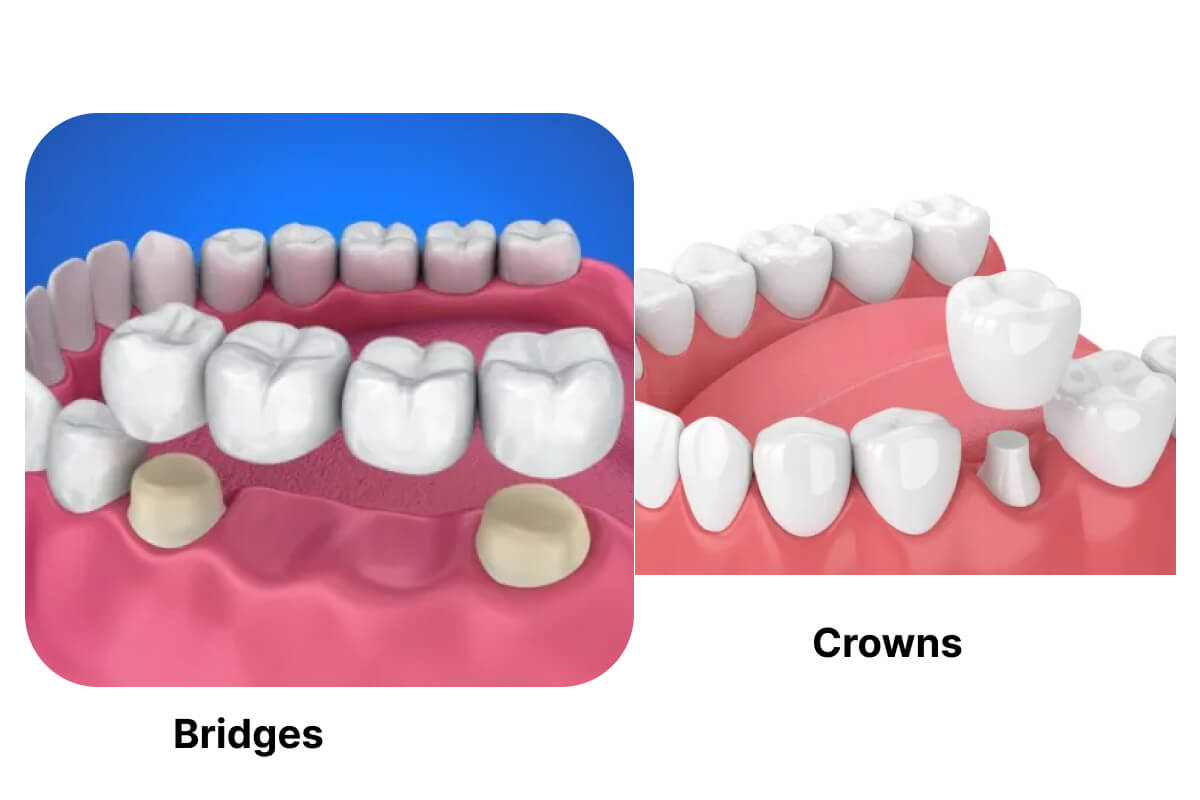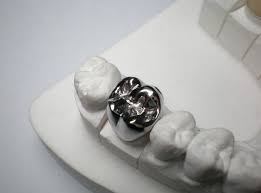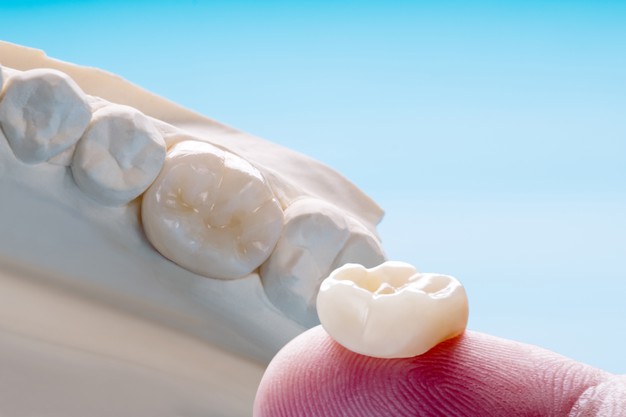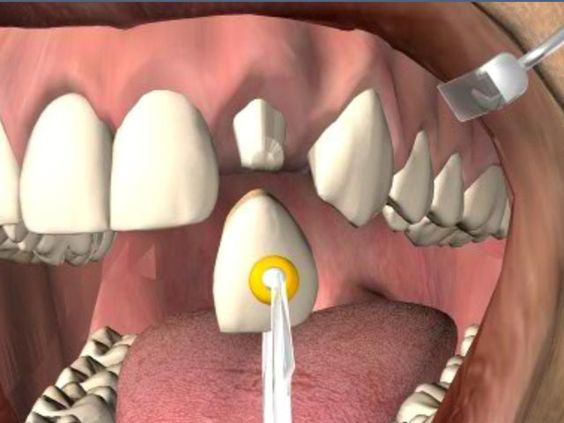
A dental crown is a tooth-shaped cap that is used to cover the tooth. It is used to cover a decayed or damaged tooth due to trauma. It protects and restores the size, shape, and appearance of the tooth. Also, it improves the strength of the tooth. The crown is fabricated in the dental laboratory after an impression is taken and later cemented on your tooth.
Dental crowns are used to restore the size, shape, and appearance of your tooth. Following are the conditions when dental crowns are needed:



There are different materials used to fabricate the crown. The materials are metal, ceramic, and a combination of both.
Different metals can be used, such as gold, stainless steel, palladium, chromium, and nickel. Mostly, stainless steel and gold are more in use. Metal has the best durability and can last a long time without any wear and tear. It also bonds perfectly with the tooth and can withstand the forces and pressure created by chewing and biting hard food. However, the metallic colour is the only drawback of using a metal crown, as it doesn’t give an aesthetic smile. But this can be used for the molars, where the crown is not visible.
Ceramic crowns are tooth-coloured ones. These crowns have the best aesthetic appearance. This is a good option if you have metal allergies. But this type of crown can wear down the opposite tooth. It is considered the best option for your front teeth. But for molars, it wears down the tooth due to the biting forces applied.
This crown has metal on the inside and porcelain on the outside. It has the strength provided by the metal and the tooth-coloured appearance due to the porcelain, hence the dual advantage. The porcelain fused with metal crown solves the aesthetic problem associated with an all-metal crown. But the problem with this crown is that sometimes a black or dark line is shown because of the metal. Also, there are chances of chipping with the porcelain portion of the crown when higher forces or more pressure are applied.
Taking care of your dental crown is important to get the best results:
The expense of a dental crown depends on the type of material you choose. A metallic crown will cost you less than porcelain fused to metal or ceramic crowns. But it is advised to get your treatment done at a reputed clinic for long-lasting results.
Are crowns better than bridges? If the tooth is decayed or damaged, a dental crown is preferable. But if the tooth is missing, then a bridge with the support of an adjacent tooth is preferred.
Can crowns be whitened? No, dental crowns are not whitened. The materials used for professional tooth whitening do not bond with the dental crown as they do with the natural tooth.
How to clean crowns? Maintaining proper oral hygiene helps you keep your crown in good condition. Dental cleaning is recommended every six months for best results.
What is the cost of a dental crown? The cost depends on the type of material you choose and the clinic you choose. But always go to a reputed clinic for the best outcome.
How long does a dental crown last? The dental crown lasts between 5 and 10 years but can last for more than 10 years if proper care is taken. Also, it depends on the forces and pressure applied, as well as the material used.
Do you need a dental crown after RCT? Yes, it is recommended to crown a root canal-treated tooth. This will have better protection and prevent secondary infections.
Do dental crowns hurt? No, the procedure for a dental crown is not painful. The preparation of the tooth requires minimal removal of the enamel only. If one feels sensitivity or pain, tell their dentist, and he will administer or spray local anesthesia to avoid it and numb the area.